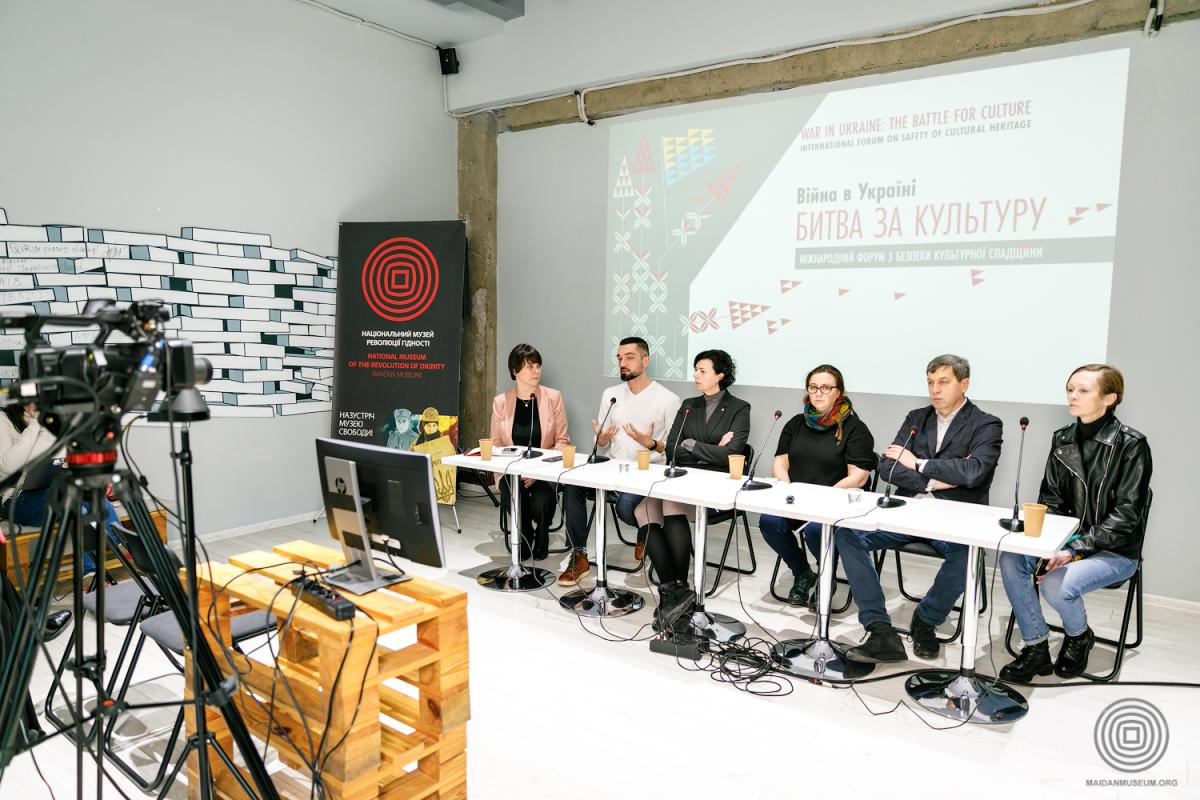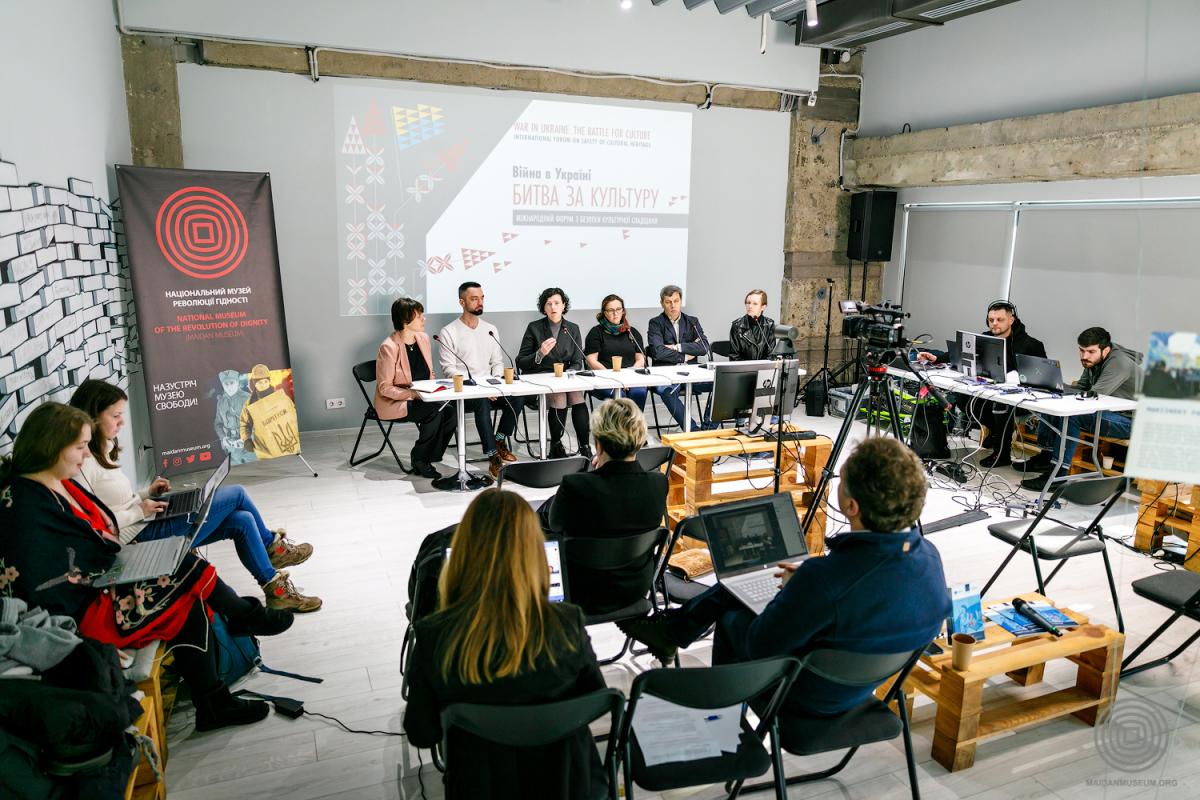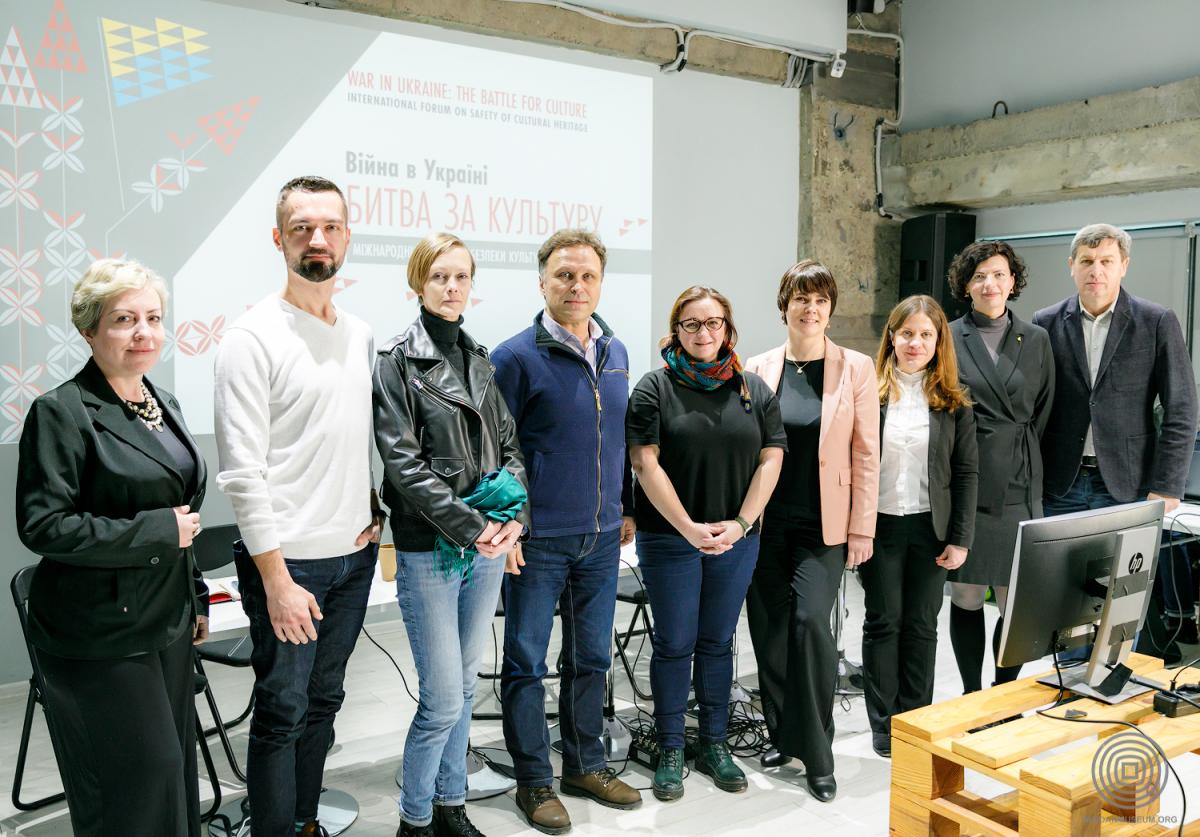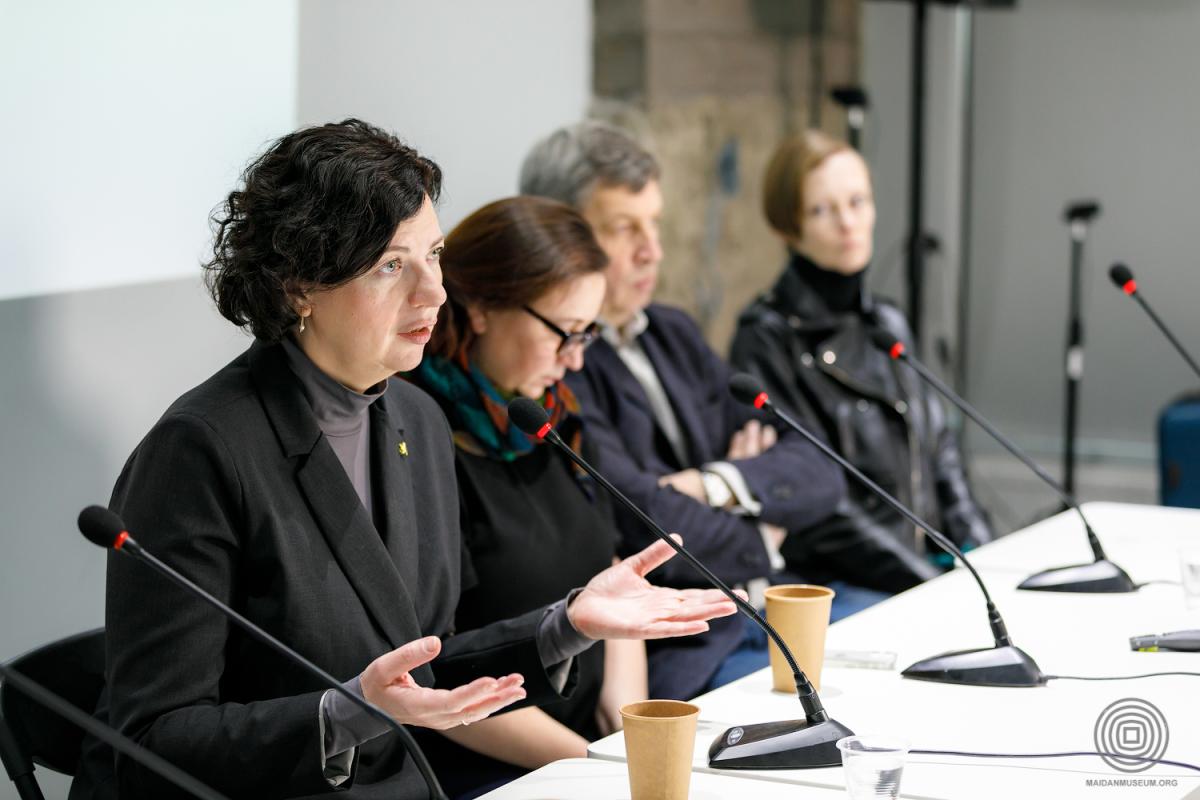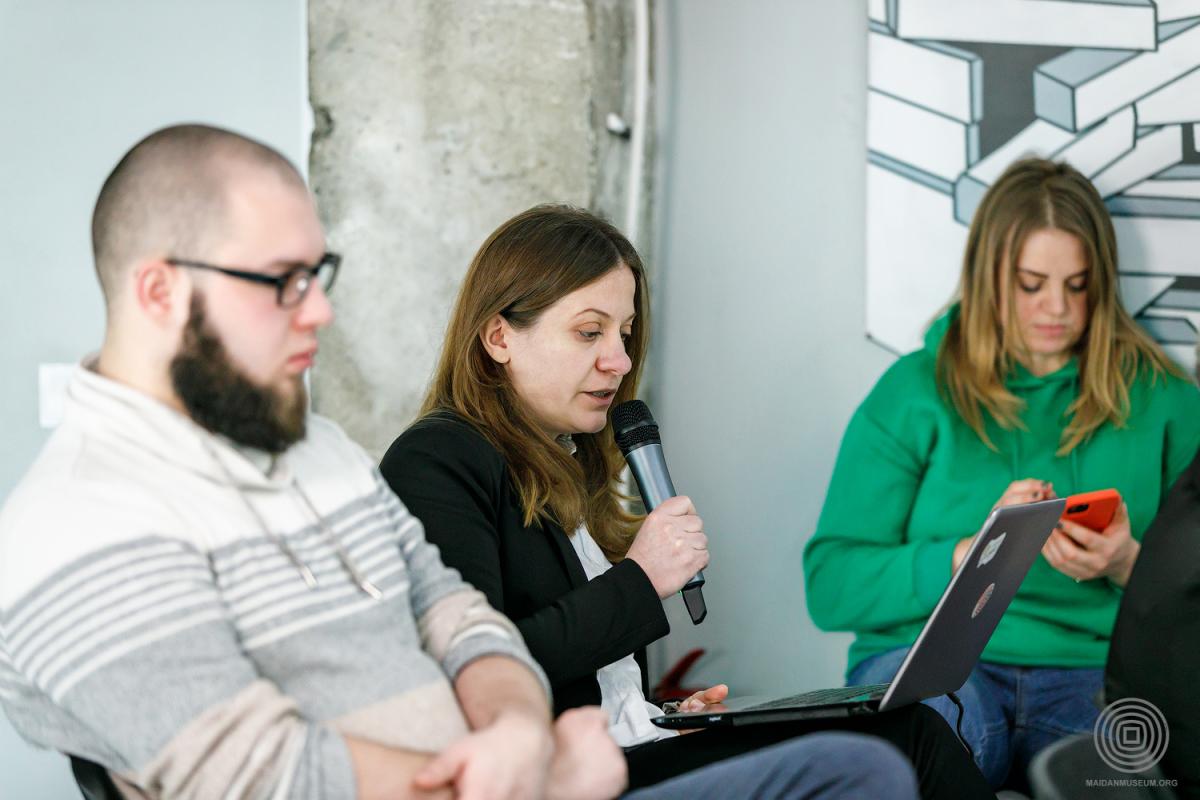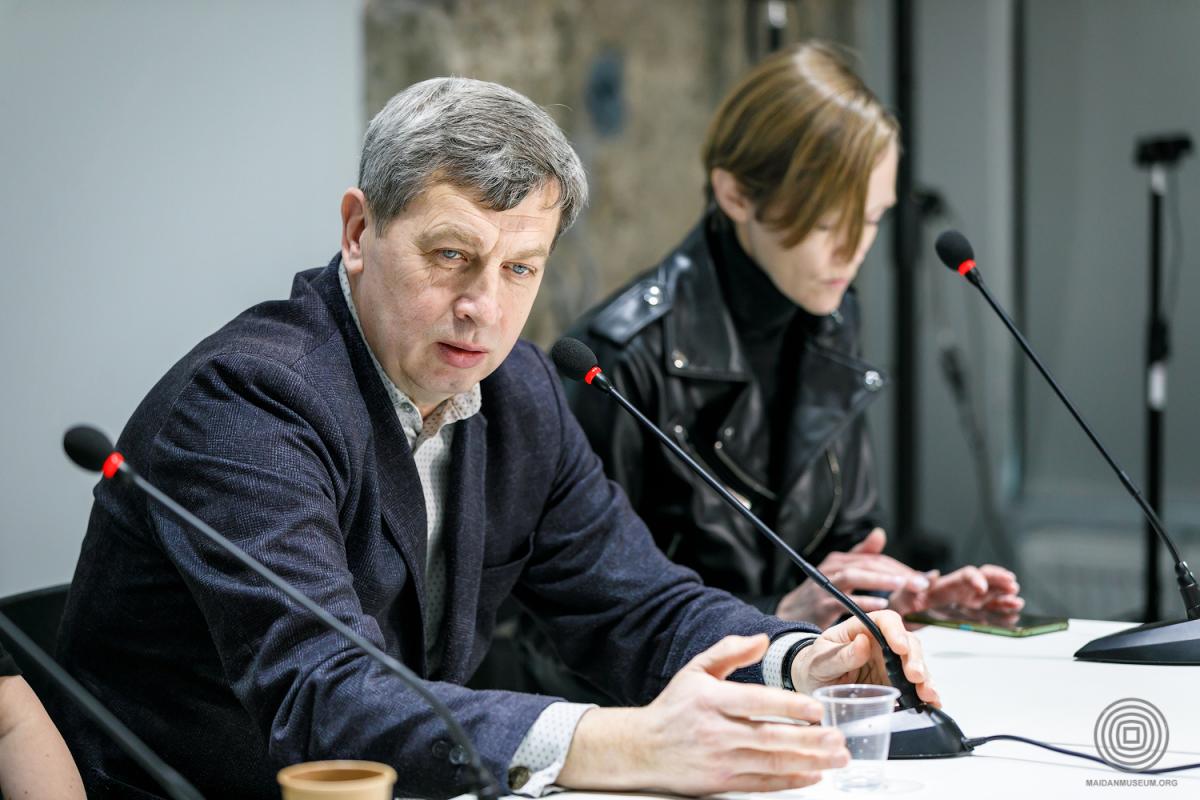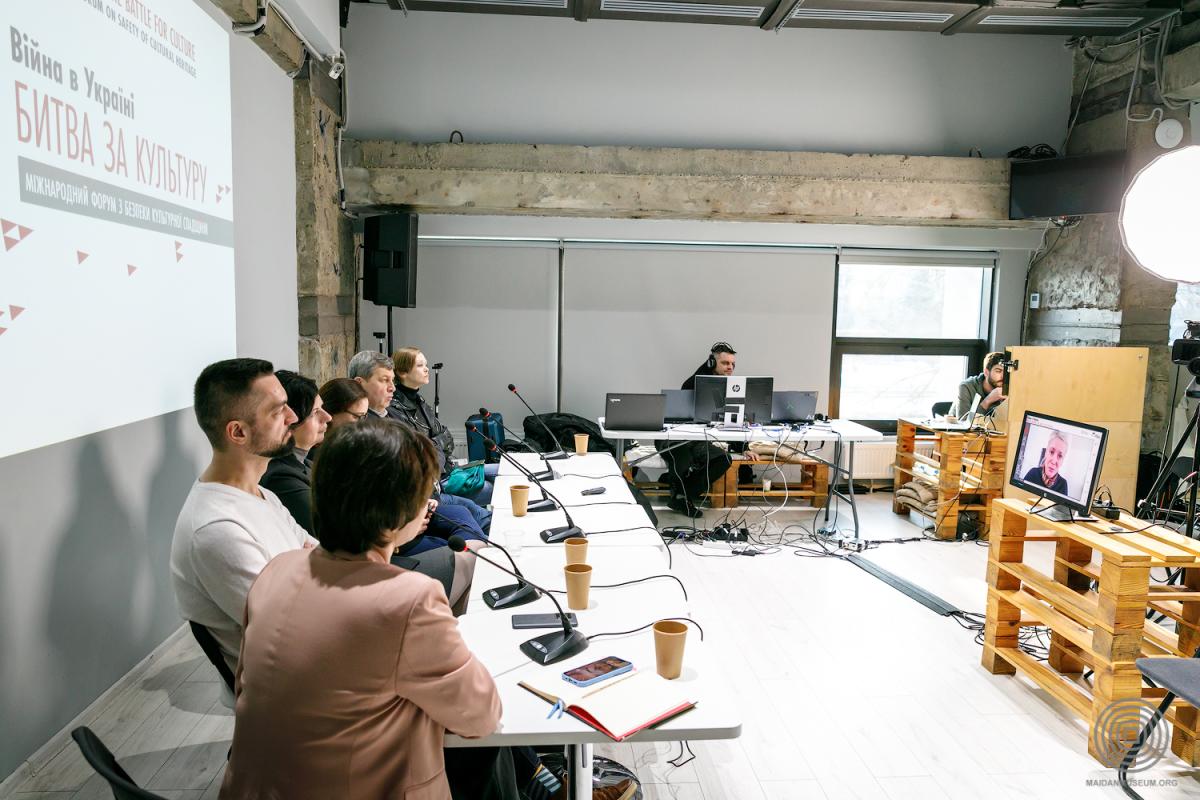
The first International Forum 'War in Ukraine. The Battle for Culture' was held in Kyiv. It became a large-scale network platform for warriors of culture battlefield. For two days, participants from Ukraine and abroad discussed the challenges in protecting the cultural heritage today and the best ways to overcome them and summarized the previous war-ridden year.
‘For almost a year, foreign governments, international institutions, and organizations have been closely cooperating with Ukrainian state bodies, cultural institutions, experts, and volunteers. We've been given protective equipment, financial and humanitarian aid, and held many meetings. The scale of support is truly fascinating, and we are deeply thankful for it. It's time to synchronize our watches, reflect on this year's lessons, analyze the needs and outline strategies for the foreseeable future, and strengthen the response networks and mutual assistance. All of these efforts are for the sake of one goal, the preservation of cultural heritage during the war, the development of means of emergency response, supporting workers and cultural institutions, bringing the aggressor country to justice, promoting the sustainable development of Ukrainian culture,' said Ihor Poshyvailo, General Director of the Maidan Museum and co-coordinator of the Heritage Emergency Response Initiative (HERI).
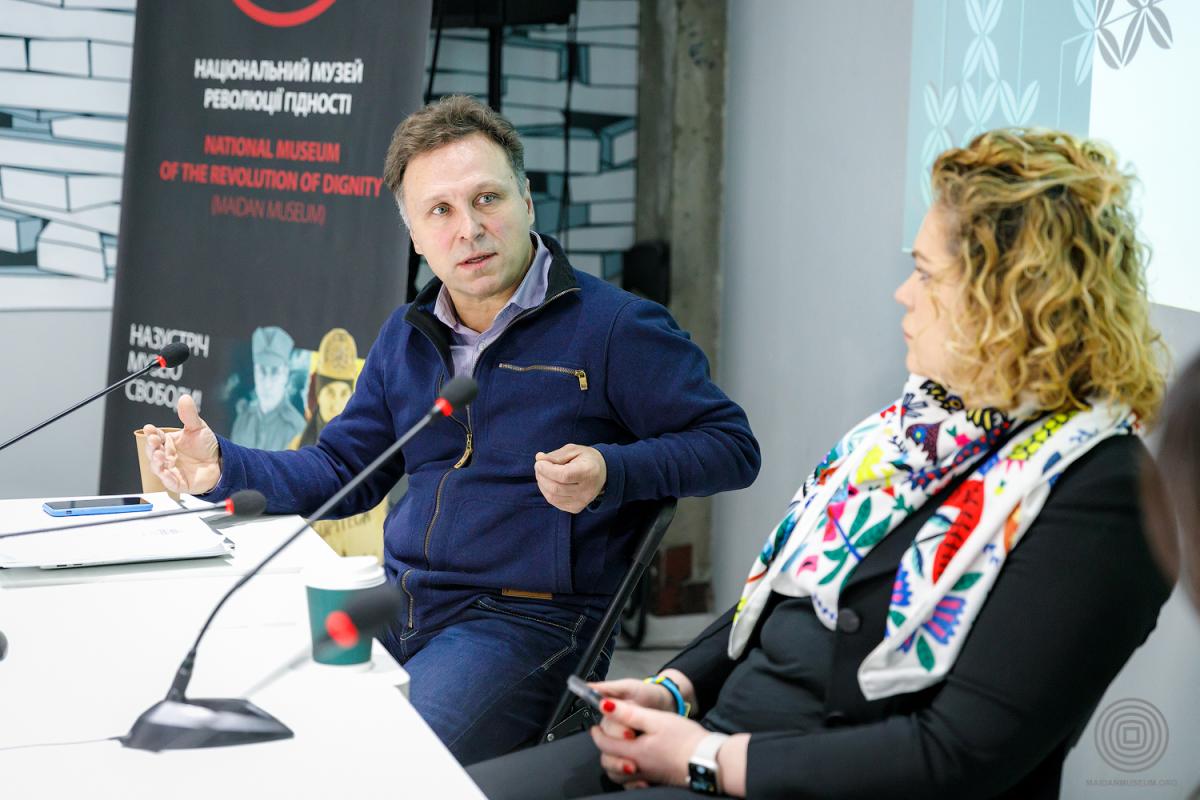
The Ministry of Culture and Information Policy of Ukraine collected information and provided statistics about the destruction caused by aggressors. In less than 12 months of full-scale Russian war against Ukraine, Russians have severely damaged or destroyed about 1500 objects of cultural heritage and infrastructure, namely museums, libraries, and archives. The last time a similar scale of looting and war crimes was documented was during the Second World War.
‘We know that many objects of cultural heritage were destroyed purposefully. There are many signs of cultural genocide, among which are targeted attacks, banning, confiscation, and burning of Ukrainian books, illegal transportation of objects of cultural value, archive documents, prohibiting Ukrainians from accessing their cultural heritage, and the russification of occupied territories. The war made it clear that cultural heritage, both tangible and intangible, is one of the key elements of national security. That is why MCIP took the initiative to establish this priority at the legislative level - through amendments to the Law on National Security and the adoption of two framework Laws 'On the principles of state policy in the field of cultural heritage' and 'On the preservation and restoration of national memory',' said the Minister of Culture and Information Policy, Oleksandr Tkachenko.
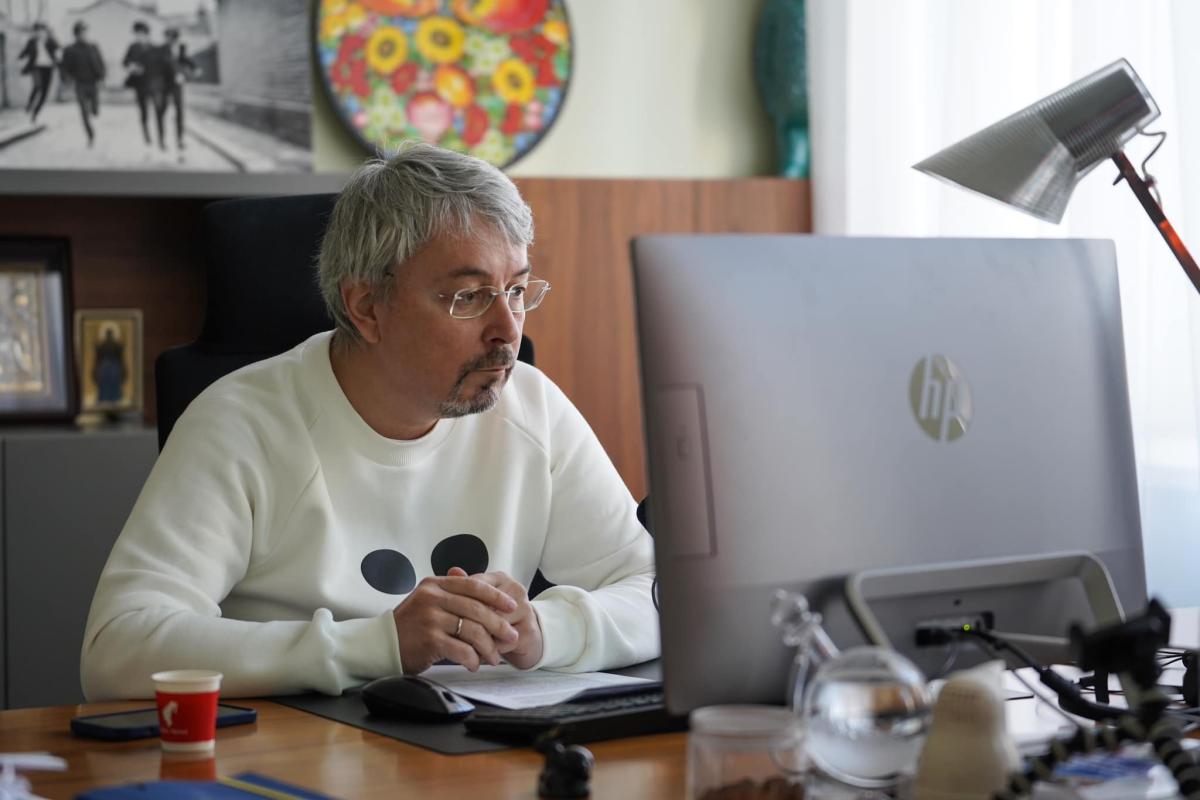
Ukrainian culture became a target for Russia, note foreign partners. They speak about solidarity, joint efforts, active stance, and intentions to continue helping Ukraine.
‘The scale of losses of Ukrainian cultural heritage, both tangible and intangible, today is enormous. Therefore, joint efforts of the Ministry of Culture and Information Policy and other professionals are crucial for preserving cultural heritage. Coordination of efforts will allow us to quickly prepare for the restoration process,' said Teresa Patricio, President of ICOMOS.
‘In response to Russia's aggression towards Ukraine, we reacted to the humanitarian crisis. To this day, we actively mobilize sources at all government levels. We plan to participate in the restoration of Ukrainian cultural heritage. We are ready to share our expertise. The culture is about identity, and it's important to protect it,' noted Katarzyna Zalasinska, Director of the National Institute of Cultural Heritage in Poland.
Raising awareness of the international community about the challenges Ukraine faces is among the top goals of the Forum. Due to a significant amount of information, in particular about the war in Ukraine, there is a risk of losing the active interest of partners over time.
‘Everyone agrees that the culture should be a part of the National Security Strategy. It's the most important task for everyone, from Ministry to the public sector. The second part is funding and support of the sector. We have a terrible flow of workers. The third part is the experience exchange and application of knowledge, European principles and standards. We understand that the path to future integration is irreversible,' said Anastasia Bondar, Deputy Minister for Digital Development, Digital Transformation, and Digitalization of the Ministry of Culture and Information Policy of Ukraine.
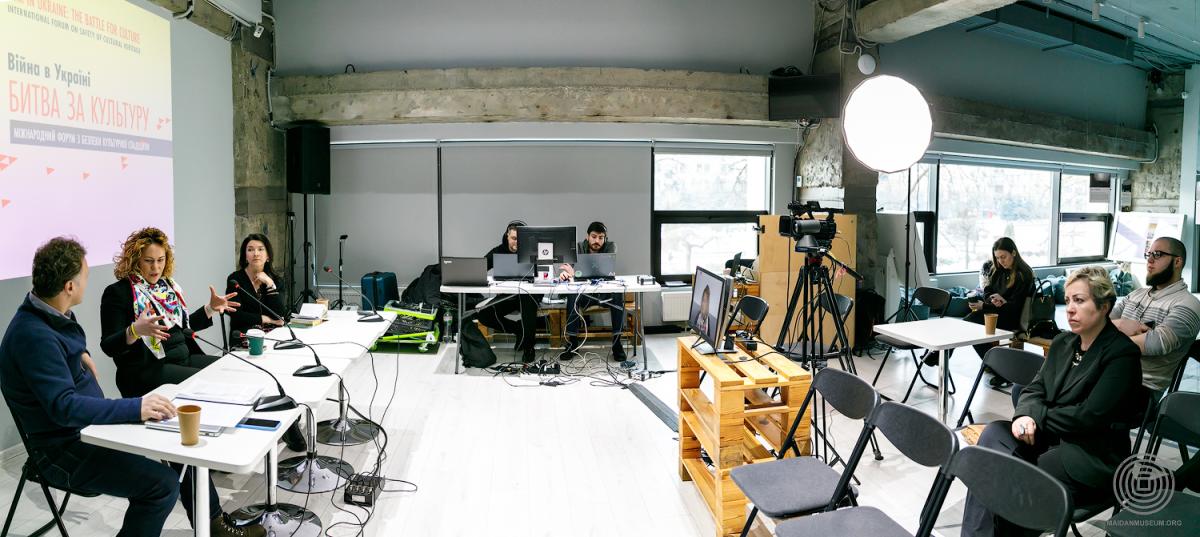
Elmira Ablialimova, civil activist, and expert at the Crimean Institute for Strategic Studies, is certain that the development of a strategy for the protection of cultural heritage is particularly important.
‘We need a new toolkit on issues of international law, which would work on preventing the destruction of cultural heritage sites. We need the development of the third protocol of the Hague Convention. All of us coming to this Forum is crucial. Everyone has a very different experience on this issue, but communication is the key. We all work on different things for one goal, the protection of cultural heritage,' said Elmira Ablialimova.
Representatives of national museums, rural libraries, nature reserves, regional and local lore museums, restoration centers, embassies, international organizations, and aid initiatives also joined the Forum. Olha Honchar, founder and Director of the Museum Crisis Center, highlighted the financial challenges faced by the experts in the cultural field and emphasized that people protecting culture are one of the first ones on the Russians' hit list. She called to keep raising awareness about this issue on all international platforms.
Despite the time difference, participants were also able to communicate with workers from the USA, Canada, Poland, Germany, Sweden, and other European countries. During the public and private panel discussions culture workers summed up the challenges of the year of full-scale war and outlined plans. Many outcomes, especially those from the private working groups, can't be shared for security reasons.
‘We worked a lot, but we didn't talk much with each other. And that's also a bit of an issue, since we, inside the country, are all very overwhelmed. Especially those close to the battlefield. It's hard for them to allocate time to think about the future, strategies, and things not related to the here and now. This Forum is the first of many events we can hold to allow ourselves to communicate with each other,' said Deputy Minister of Culture and Information Policy Kateryna Chuieva.
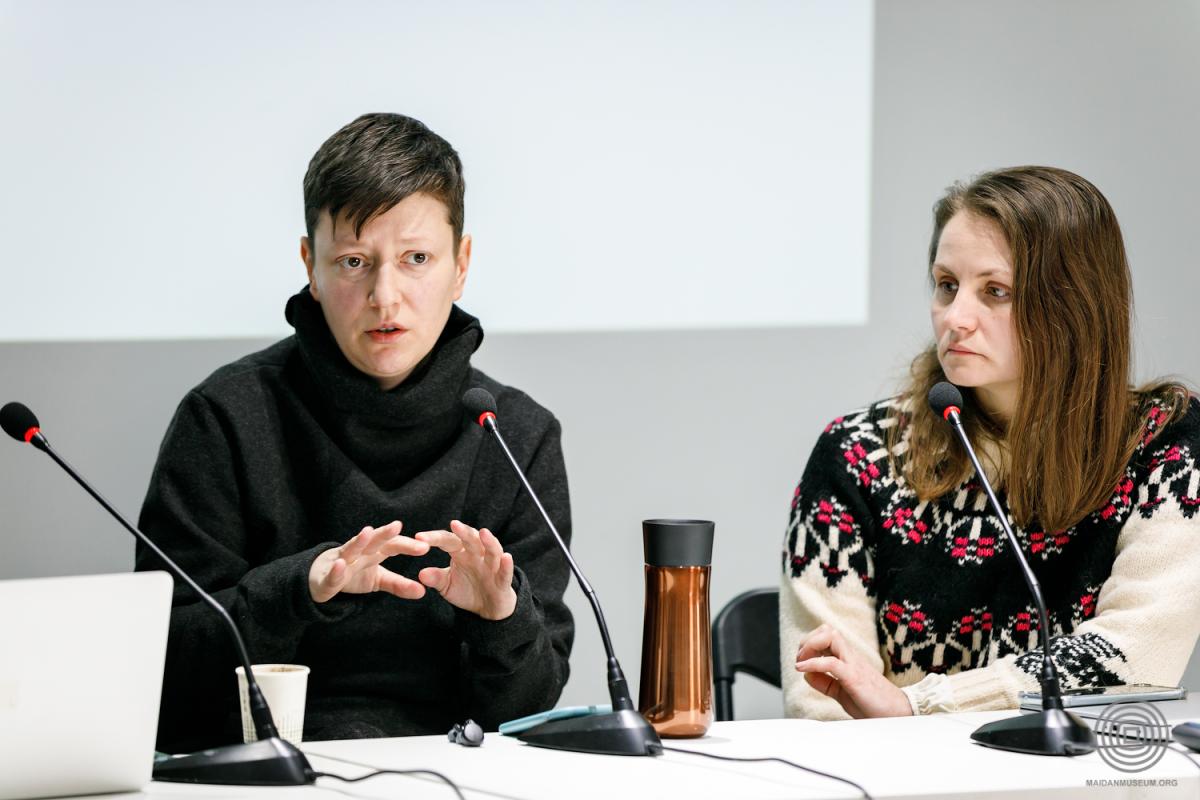
‘Earlier we discussed decade-old problems. From this point of view, the war provided a unique opportunity; we can do everything today, taking into account different realities, both inside and outside the country. Today, the whole world is ready to help us. Therefore, we have to fix those issues we've been working on for decades, we have to change the infrastructure, create a strategy, initiate the national emergency response system within the system, and create groups of military-civilian cooperation. It's a huge field of work. I think that 2023 should be the year of a big and decisive step forward,' concluded Ihor Poshyvailo.
The Forum was organized by the Heritage Emergency Response Initiative and Maidan Museum in partnership with Ukrainian and foreign colleagues. View the recording of the live stream here:
Panel Discussions:
- Preservation and Protection
- Reconstruction, restoration
- Ukraine is in the spotlight. How to develop permanent partnerships for the future

